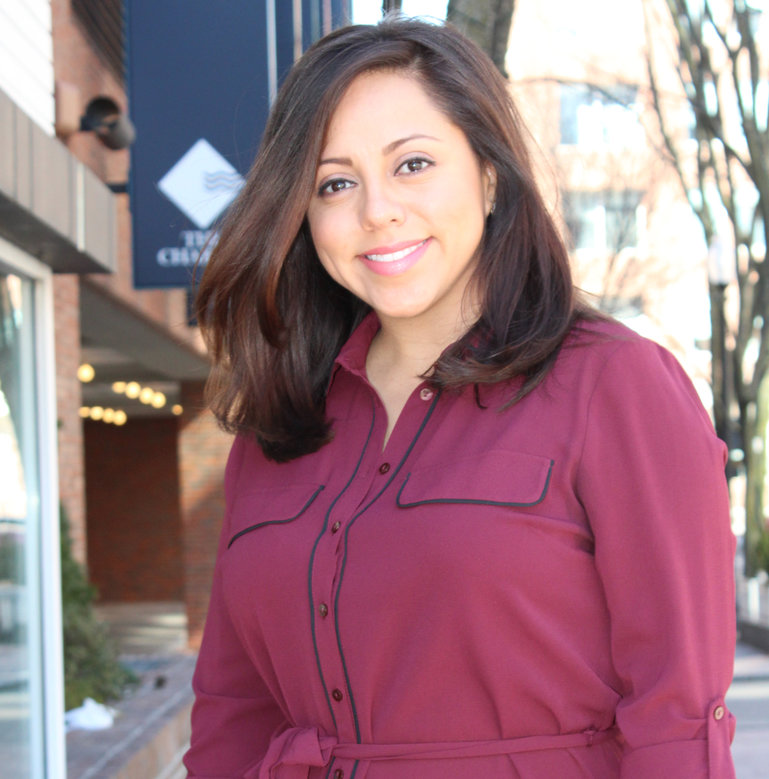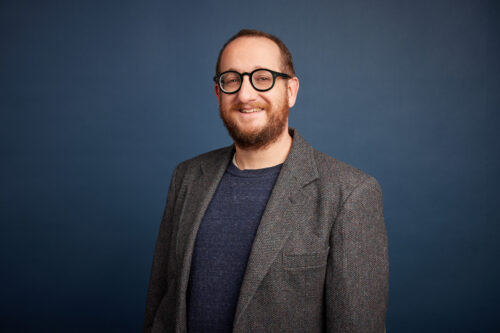Feature
From Sacramento to DC
For Roy and Lila Ash Fellow Teresa Acuña, community always on her mind

President Obama’s unprecedented decision to commute the sentences of nearly 1,500 federal inmates incarcerated on low-level drug offenses has given a second chance to those on the receiving end of disproportionate sentences handed down at the height of the war on drugs and allowed them and their families to begin the process of rebuilding their lives. For Teresa Acuña, mid-career MPA 2017 and the Roy and Lila Ash Fellow at the Ash Center, her experience as a legislative aide and advocate would intersect in an intensely personal manner with President Obama’s efforts to undo some of the social damage wrought by this decades-long war on drugs.
In January 2016, while working as the director of Policy and Leadership Programs at the National Hispanic Leadership Agenda (NHLA), a coalition of the nation’s 40 most prominent Latino organizations, Acuña stumbled across an article criticizing the White House for failing to grant clemency to a single Latina federal inmate. “The Obama Administration was winding down, and I was juggling a bunch of different policy priorities, but this one was stuck in my head. I kept telling myself ‘okay Teresa, you need to figure out how to pressure the administration on this,’” recalls Acuña.
The article that caught Acuña’s eye mentioned the story of Josephine Ledezma, a mother of three and first-time offender who was convicted of playing a minor role in a drug deal with her brother, for which she was ultimately sentenced to life in prison. In early 2016, Acuña received a Facebook message from a grade school classmate. He confided in her that his mother was serving a life sentence for a minor drug conviction and that he was working to rally support for her mother’s clemency before President Obama left office.
“This woman whom I had read about months before was his mother. I had to get involved,” recalled Acuña. Acuña brought Ledezma’s case to the attention of colleagues at NHLA. “Can you push and crank some levers,” she pleaded. Acuña cobbled together a coalition to advocate on Ledezma’s behalf, raising this urgent issue with the president’s administration in the White House. In August, Ledezma was pardoned by President Obama after serving 24 years in prison. She’s back home with her son Daniel.
For Acuña, Ledezma’s release was the capstone of a career thus far spent working to help those around her in need. The Rialto, California, native grew up in a working class home, the daughter of immigrants from Mexico. “I saw a lot of inequities that exist,” said Acuna. “The real driver behind my career goes back to my parents, who fell in love with this country and its democracy.”
Acuña headed off to college at San Diego State University at a time when immigration too was at the forefront of our national political conversation. “It was when we were actually getting some momentum in Congress to pass a bill, and we actually had the president’s ear,” said Acuña, referring to President George W. Bush’s attempts in 2006 to get a comprehensive immigration bill through Congress. The negotiations and their ultimate collapse helped galvanize students across the country, including Acuña, who led fellow students in support of immigration reform.
After graduation, Acuña was selected for the highly competitive California Senate Fellows program in the state legislature. There she was introduced to the rough and tumble world of Sacramento politics and ultimately landed a job as a legislative aide with senator Gil Cedillo, a state senator from the heart of Los Angeles known as perhaps “the most vocal pro-immigrant legislator of California history,” according to Acuña. Cedillo’s signature issues in the state senate included legislation allowing undocumented immigrants to attend California universities at in-state tuition rates as well as permitting them to legally obtain drivers’ licenses.
A job with state assembly member Luis Alejo, who represented the fertile agricultural land surrounding Monterey and Salinas, California, known as the Salad Bowl of America, introduced Acuña to agricultural and farm-worker related issues. Ultimately, this policy experience would serve Acuña well when she later moved to Washington, DC to serve as legislative director for Congresswoman Gloria Negrete McLeod.
As a member of the House Agriculture Committee, Negrete McLeod was involved in negotiations over the passage of the Farm Bill in 2013, which sets agricultural policy as well as authorizing funding for food assistance for low-income Americans. “We have a really high proportion of young students that were on free and reduced lunch. That was something that was personally very close to the congresswoman and myself as someone from the community,” said Acuña. During consideration of the Farm Bill, conservative Republicans attempted to gut food assistance programs. Negrete McCleod and others in Congress representing districts with large numbers of constituents receiving supplemental nutrition assistance pushed back on the proposed cuts, ultimately preserving funding for these programs in the final version of the bill that made it to President Obama’s desk. “That was a great experience. I really enjoy public service when you can actually deliver and show your district that you can be a force for good,” Acuña reflected.
For Acuña, transitioning away from the daily grind of legislative and advocacy work in Washington and Sacramento to attend HKS offered a chance to delve deeper into the intellectual discussion about the challenges facing American democracy today. “I get to the Kennedy School and it’s like being at a policy carnival. I just want to ride every ride. I want to take every class because either the professor is amazing or it addresses a real skill gap that I have.”
Marshall Ganz’s class on organizing was the hardest of Acuña’s first semester at HKS because “it really stripped you of this wall that everyone has and it compelled you to give your most raw and honest personal story.” David Eaves, who teaches a course on digital government, helped transform the way Acuña thinks about how citizens interact with government, “It started making me look at the service delivery of government in a very different way and thinking more and more about the user perspective. How do we design websites, apps, and programs so that people, citizens, have a better experience with them?”
With graduation soon on the horizon, Acuña is pondering her next move and thinking about how she can take her experiences and education from HKS and continue contributing to our democracy. “I look forward to what lies ahead in my professional life because I know it will always be rooted in the things that bring me joy, which is helping my community.”
